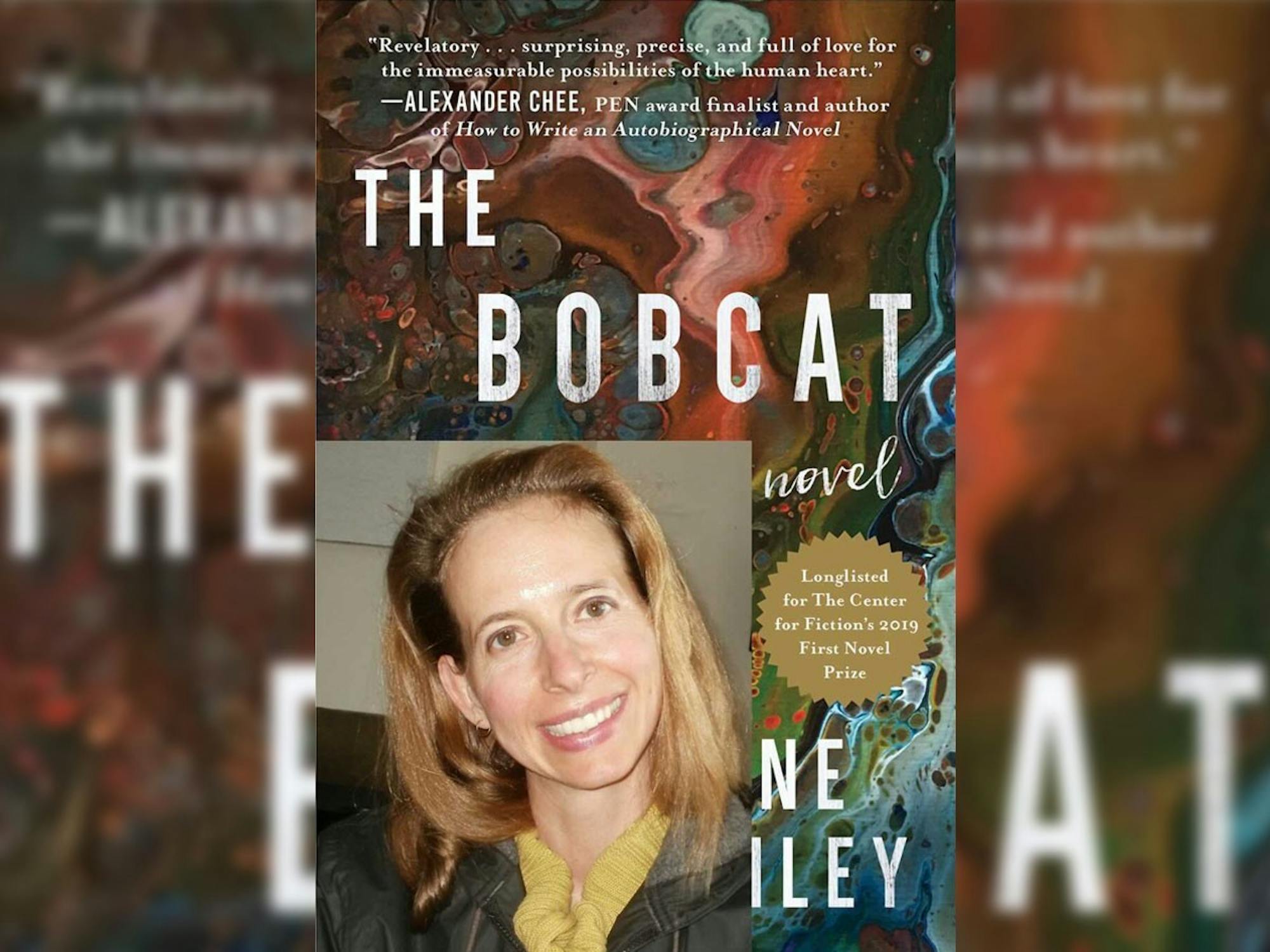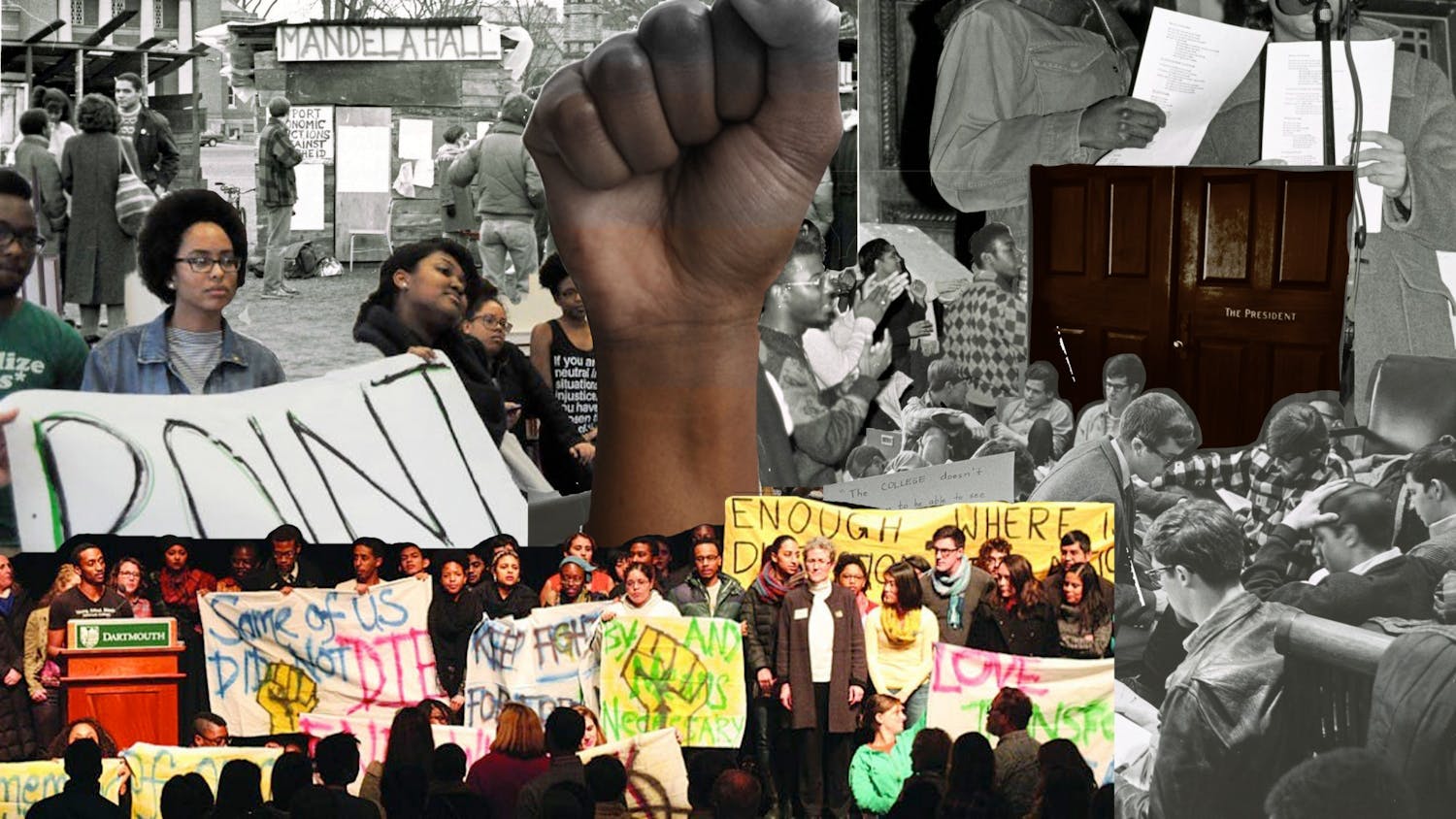Katherine Forbes Riley ‘96, a computational linguist and author, graduated from Dartmouth with a degree in linguistics with a concentration in pre-med. She went on to receive her doctorate in computational linguistics from the University of Pennsylvania in 2003. In June 2019, Forbes Riley published her debut novel, “The Bobcat.” Some of her other creative works, including her short fiction work “Speaks My Language,” have appeared in the Wigleaf 2018 Top 50 list, among other literary magazines. For her creative writing, she has received the Inkslinger’s Award for Creative Excellence, an award presented by Buffalo Almanack to the best short story and art piece in each issue of the publication.
Framed with the landscape of Vermont, “The Bobcat” shares the story of Laurelie, an art student who forms a meaningful connection with an injured, pregnant bobcat, and a hiker named Lucien, who has followed and cared for the creature for 300 miles. Laurelie’s relationships with the bobcat and with Lucien help her heal from the trauma of a fraternity rape at a university in Philadelphia, which she vacates for a small college in rural Vermont.
In an interview with The Dartmouth, Forbes Riley spoke about the influence of her time at Dartmouth on “The Bobcat,” the people in her life who helped shape the characters, and the ups and downs of publishing the novel.
What was your inspiration for writing “The Bobcat”?
KFR: When I went to college, I thought I’d be a doctor — I ended up being a linguist — but I took all the premed requirements. There's some science in “The Bobcat,” and that's sort of where that comes from — the premed science classes I took. I actually didn’t like Dartmouth — I found no community that was like me. So I was really, really isolated. And some of that comes out in the book in Laurelie’s character. Her experience in the book was a lot like mine in some ways. And then years passed, I got pregnant and I had my son. That was just a really transformative experience for me, and part of that was, suddenly, I wanted to write. I’d done some writing in high school, but it was never anything I considered doing until then. But all of a sudden, I really wanted to do it. I didn’t know what I could write, so I figured I’d try to write a cheap romance. I was like, “I’ll just write sex.” It’s the lowest hanging fruit I could think of. That’s what the first draft of “The Bobcat” actually was. It was just a romance, but also what came out in between the sex scenes was trauma. The things that flowed most easily in the writing were the hardest parts of my life to date.
How did your experience at Dartmouth influence “The Bobcat”?
KFR: As I mentioned, I had a tough time here, not academically, but socially. When I came here, suddenly I was surrounded by the mostly white, mostly wealthy and mostly prep-schooled. And, my family, we weren’t poor — we had enough to eat — but we weren’t that. I just didn't have any connection with anybody. It was very frat and sorority-oriented. I’d been sort of a wild child in high school, so I was able to be wild but also get good grades, and then I came here and there were so many kids that were being wild for the first time, getting totally drunk at the frats. Whatever it was, it wasn’t me. And I sort of became friends with somebody that I shouldn’t have been friends with. She was wealthy and connected, and I was me. So a lot of that story in the beginning of “The Bobcat” is modeled on an experience I had.
The novel is named for the injured bobcat that becomes a source of bonding for Laurelie and the hiker. Why a bobcat? What does the bobcat mean in a symbolic sense?
KFR: Speaking in terms of craft, I needed some element that would enable Laurelie to stop and look and be stuck there long enough to take Lucien in. Given the environment, that naturally embodied itself as an animal. Then it became, well, what kind? I love cats, so I wrote that character trait into Laurelie. She has two cats, which, in a way, saved her life. The bobcat frightens her, but she is also fascinated by it.
Intentionally, as an author, the bobcat is meant to mirror her trauma. It's been abused by men and it’s on the run. It’s looking for a place and people to be with for companionship. Another element of similarity between them is how the hiker helps them both, but in the end has to let them both be free. In my mind, they’re the same.
What was the most difficult part of the journey to publication of “The Bobcat”?
KFR: I think if you write a book that people connect with, you’ll get it published, but it might take years. The most important thing I’ve learned is not to give up. I sent “The Bobcat” out to agents for publication two years before I sent it out again. The first time, it got all rejections from agents because the book wasn’t ready. But for me, I learned for myself as a writer that when I think it’s done, it’s not always done. The final thing, and it's a sad thing, is that the big five publishers only accept a small number of books — mostly those in the self-interest of the publisher, so. light and fluffy romances or slick surface thrillers. It’s going to be a hard road to publish anything that's not, for whatever reason, desired by those powerful men in suits up there.
What do you hope your readers will take away from the novel?
KFR: There was a guy that read it who interviewed me for something else back when the hardcover came out, and he told me that he was going through a tough divorce. He lives around here and he said he went into the woods one day and looked at a snail, inching along. He said he felt like that snail, leaving a trail of slime. He said, “when I read ‘The Bobcat’ that’s exactly what it brought back to me, the feeling he had while watching that snail.” So that’s what I want — for you to identify with that space, that place of hardship and then move out of it. That's what I was trying to capture, is getting out of whatever negative space that can be all-consuming.
What are your writing goals for the future? Do you have any other works planned?
KFR: I’m so excited about my second novel. I tried to write a second one right when Trump was elected, but it had no lyricism. The novel had no nature, really — it was flat. I could still take that work and try to make it into something. I haven’t given up, but it’s not ready for other eyes yet. But this next novel that I’m writing — I could just tell it’s like “The Bobcat” in the sense that it’s about nature, it’s about childbirth and it uses linguistics. To me, all languages are, at their root, the same. These themes are all just so interesting, so I tried to put them into this next book.




